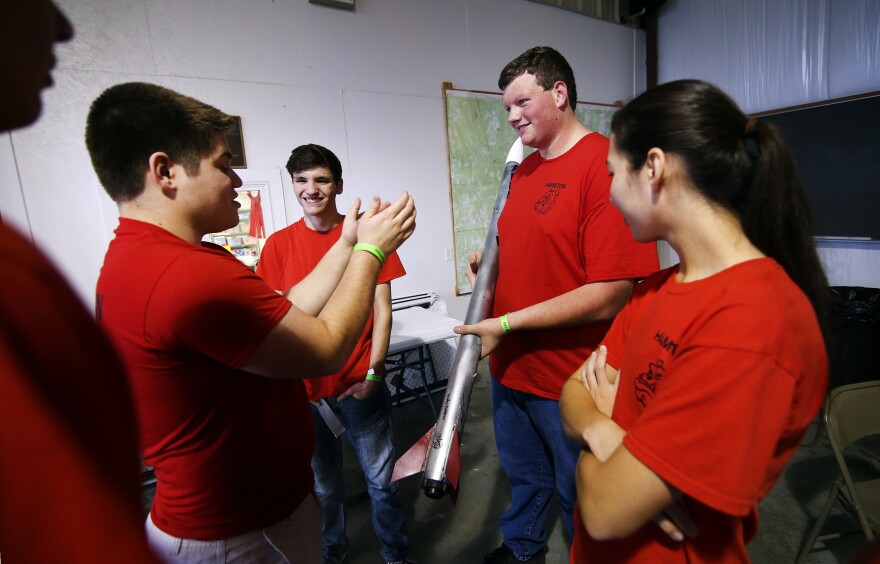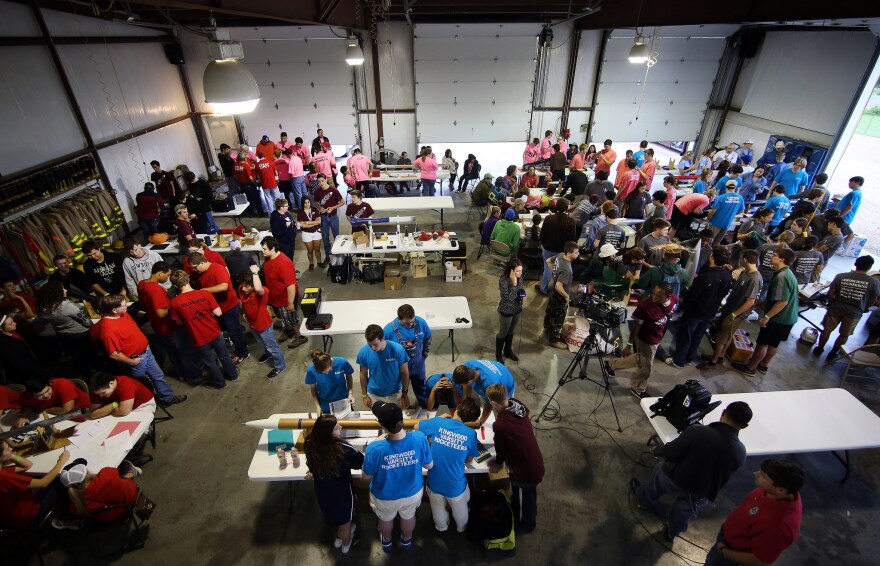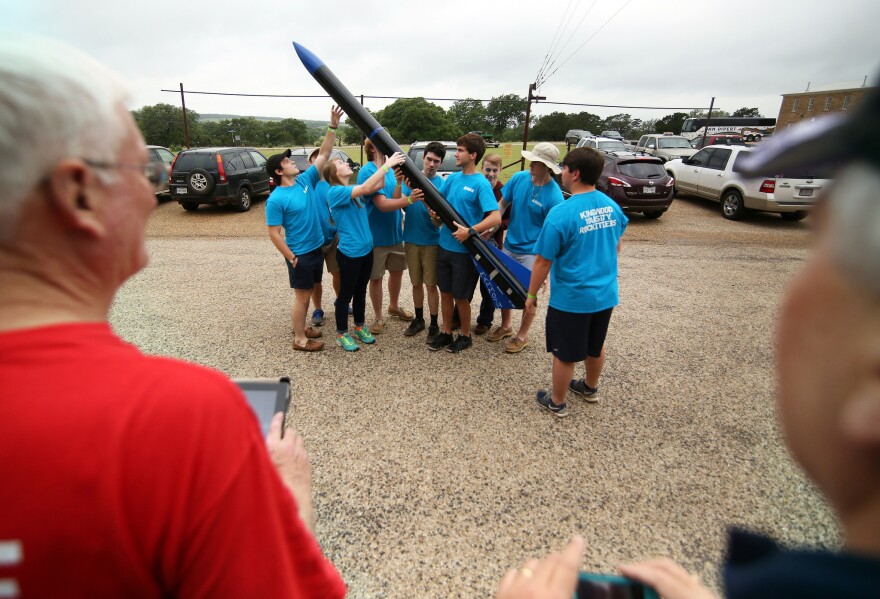
High school students from across Texas are spending the weekend launching rockets near Fredericksburg as a part of an aeroscience engineering program called SystemsGo.
The Willow City volunteer fire station just outside Fredericksburg filled up with high school students from all over Texas at 6 a.m. They bend over nearly 20 different rockets, prepping them for launch.
Students ask questions like: “So when the parachute comes out, where is the air resistance going to be? How is it going to catch air? Did we research that?”
One team of students traveled from Kingwood High School in the Humble Independent School District outside Houston. They’ve been working on their rocket for six months — even building part of it with 3D printers.

“So when it all comes out — so this gets wrapped around the charge?” a student asks.
“This is going to be a mile high. It has plenty of time to catch some air,” says another.
“Basically, I want to be an engineer, and I think for speak for pretty much everyone in this class,” says senior Austin Schafer. “I want to go into mechanical engineering, but what I wanted was the experience of working with a team. Hopefully that gets completed, and we’ll see our half year of hard work pay off and launch a rocket.”
The rocket launch is part of a science and engineering curriculum through SystemsGo. Brett Williams started the program when he was teaching in Fredericksburg. He founded it in 2003 so other schools could use his engineering curriculum. Under new state graduation plans introduced last year, the curriculum was expanded to 9th through 12th grades. Each spring, the students come together to launch the rockets they’ve built.
“I was very disappointed at the talent we were hiring right out of universities, expected to work a job that they were told exactly what to do, which really falls into that 'blue collar' label criteria,” says Williams. “What we needed was people to design research equipment and things like that, and they didn’t have the competency to do that.”
He says the goal is to teach students how to become problem solvers.
“When it comes to rockets, you’re not going to find a better subject matter to teach kids math and science and physics. There’s just something about them trying to make these things fly, and fly as best as they can, that forces them to understand the math and physics behind it.”

Before the team heads to the launch pad, engineers must inspect the rockets.
Kingwood’s rocket is called 'Big Blue,' though Shafer says some teammates unofficially call it the Mammoth.
“This rocket is 110 inches tall. The body tube is black with blue fins and a blue nose cone with a gloss finish. The entire body tube is made out of and held in by wooden centering rings. It’s easily one of the biggest rockets here today,” Shafer says. He corrects himself: "Tallest — tallest rockets."
After inspection, the kids give the rockets to professionals to actually launch. Students aren’t allowed to touch the rockets for insurance reasons. After they hand over the rocket, all they can do is wait — which they were doing, nervously, at a safe distance of 500 feet from the launch pad.
Then:
“10, 9, 8, 7, 6, 5, 4, 3, 2, 1 — ignition!”
The rockets launch. Everyone cheers.
“It was a dual deployment, so one was supposed to deploy at apogee, but both went off at apogee — which is the max altitude — so that’s okay. It’s not terrible, it just means the wind's going to carry it far away,” says Kingwood team member Aaron Daniel. “It looked like it went up very straight, so it looks like our fins were really straight.”
Daniel says he’s planning to study engineering at Texas A&M next year. He says this class has only reinforced his pursuit of engineering as a career.
“When I was looking at, about a year ago, starting to look at where I was going to head for college, I was considering engineering, but I was worried because, you can look at a career path, but in some ways you never know what it’s like until you have hands-on experiences. After taking this class, I figured this is what I really — I mean this is fun. It’s fun to do. It’s fun to have projects and work with people," Daniel says.
Students across the state will continue to launch rockets through Sunday.

